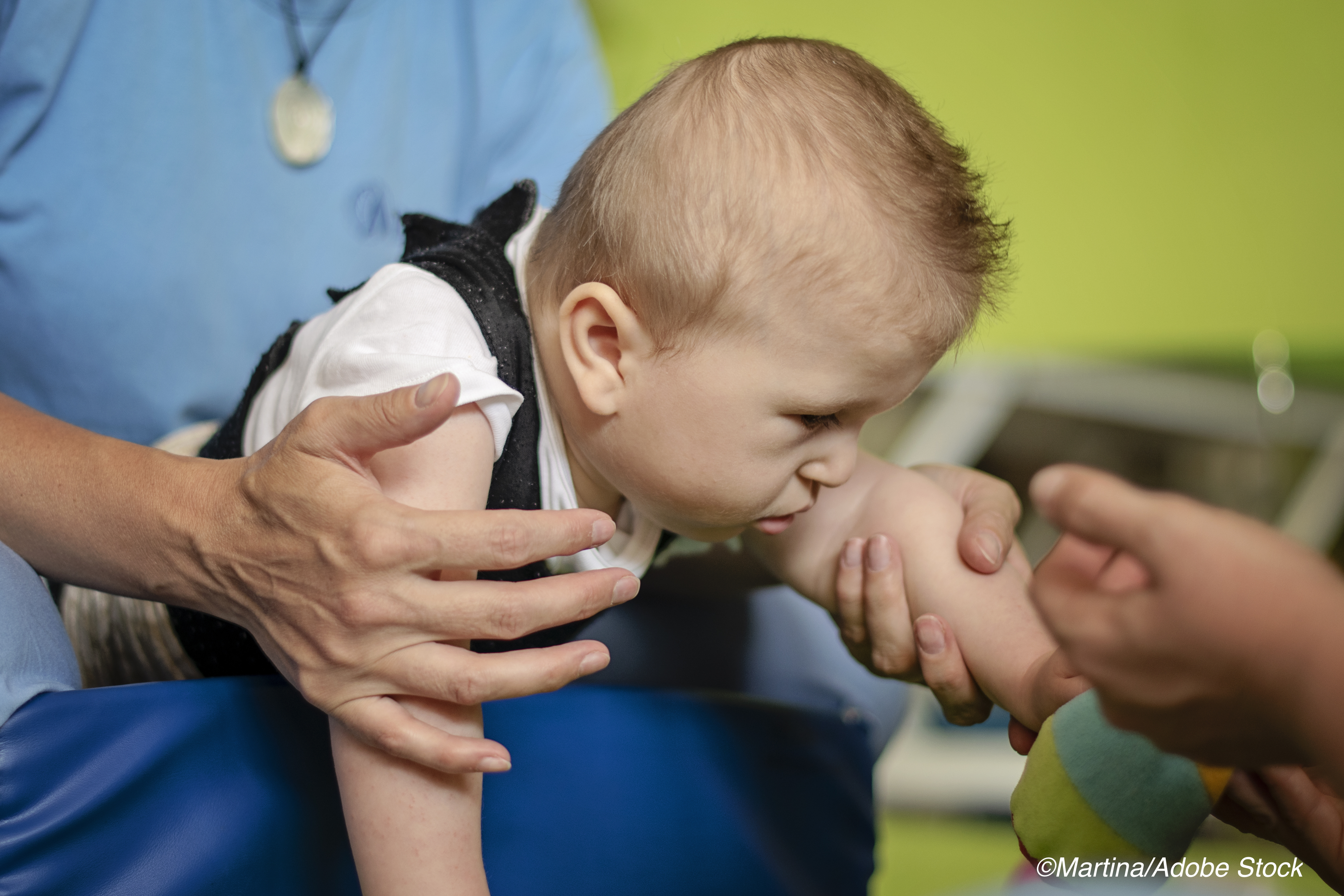
The researchers found the highest risk of cerebral palsy among children whose mothers had type 2 diabetes, lupus erythematosus, type 1 diabetes, and Crohn disease during pregnancy. Conversely, Marianne S. Strøm, University of Bergen, Bergen, Norway, and colleagues determined there was no association between paternal conditions and the risk of cerebral palsy in offspring.
Their study was published in Pediatrics.
According to Strøm and colleagues, an association between maternal chronic conditions and cerebral palsy (CP) “is not implausible.”
“Inflammation, altered thrombotic state, and placental abnormalities are all features of maternal chronic conditions, and all have been linked to CP,” the authors wrote, adding that maternal chronic conditions have been associated strong predictors of cerebral palsy, such as preterm delivery, reduced Angar scores, and congenital malformations.
Thus, in this study, Strøm and colleagues used Norwegian national health registries to examine the association between a variety of maternal chronic conditions and the risk of cerebral palsy in offspring.
The authors conducted a prospective cohort study of children born in 1990–2012 and who survived up to 2 years of age. They also retrieved information on maternal chronic conditions during pregnancy from the Medical Birth Registry of Norway (1990–2012), as well as information on chronic conditions in mothers and fathers recorded from the Norwegian Patient Registry for a subset of children.
They estimated relative risks (RRs) of cerebral palsy in offspring of parents with 17 conditions compared with the general population. These conditions included type 2 diabetes, lupus erythematosus, type 1 diabetes, Crohn disease, rheumatoid arthritis, multiple sclerosis, migraine, chronic hypertension, anemia, asthma, thyroid disorder, epilepsy, ulcerative colitis, gestational diabetes, celiac disease, heart disease, and chronic kidney disease.
The study included 1,360,149 children (including 3,575 with cerebral palsy) who were followed for a period of between 2 and 24 years. Overall, mothers with chronic conditions had a 30% increased risk of cerebral palsy in their offspring (RR 1.3; 95% CI 1.2–1.5), while those who had any autoimmune condition had a 40% increased risk of cerebral palsy in their offspring ((RR 1.4; 95% CI 1.1–1.6).
The strongest association was for type 2 diabetes (RR 3.2; 95% CI 1.8–5.4), followed by lupus (RR 2.7; 95% CI 0.9–8.3), type 1 diabetes (RR 2.2; 95% CI 1.4–3.4), and Crohn disease (RR 2.1; 95% CI 1.0–4.1), rheumatoid arthritis (RR 2.0; 95% CI 1.3–2.9), multiple sclerosis (RR 1.8; 95% CI 0.8–4.4), and migraine (RR 1.6; 95% CI 1.2–2.2). There were weaker associations for chronic hypertension, anemia, asthma, epilepsy, thyroid disorder, and ulcerous colitis, while the weakest associations were for heart disease and chronic kidney disease. The association was considerably stronger (RR 2.7 ; 95% CI 1.1–6.6) in mothers with multiple conditions.
There was no increased risk seen in children of fathers with chronic conditions.
“We estimate that all chronic conditions together contribute to 3% of CP cases and that autoimmune conditions contribute to just 1% of CP cases,” the authors wrote. “Although these associations do not amount to a heavy public health burden, they do suggest biological pathways that may lead to CP, pathways for which interventions might eventually be possible.”
In a commentary accompanying the study, Sandra Julsen Hollung, PhD, and Guro L. Andersen, MD, PhD, both of the Cerebral Palsy Registry of Norway, Vestfold Hospital Trust, Tønsberg, Norway, and Torstein Vik, MD, PhD, Norwegian University of Science and Technology, Trondheim, Norway, noted that while the study showed an increased relative risk of cerebral palsy among offspring of mothers with chronic and/or autoimmune disorders, the absolute risk was low, which they noted “is important to keep in mind when discussing with women who have a chronic and/or autoimmune disorder and are planning to become or already are pregnant and their partner.”
Nonetheless, the editorialists and the study authors note that while this study is showing association, it cannot pinpoint causation. However, the study’s findings may point to certain biological pathways (particularly maternal inflammation) as subjects of further research.
“The increased risk associated with autoimmune disorders could initiate further research into inflammatory mechanisms and the role of the placenta, the latter being probably the most important, but at the same time the least explored, organ in the etiology of CP,” Hollung and Guro wrote.
-
Maternal chronic conditions are associated with an increased risk of cerebral palsy in offspring, with the highest risk among offspring whose mothers have type 2 diabetes, lupus erythematosus, type 1 diabetes, and Crohn disease during pregnancy.
-
Be aware that while this study shows association, it does not show causation.
Michael Bassett, Contributing Writer, BreakingMED™
Strøm reports a PhD grant from the Western Norwegian Regional Health Authorities.
Cat ID: 138
Topic ID: 85,138,730,130,41,138,192,925


